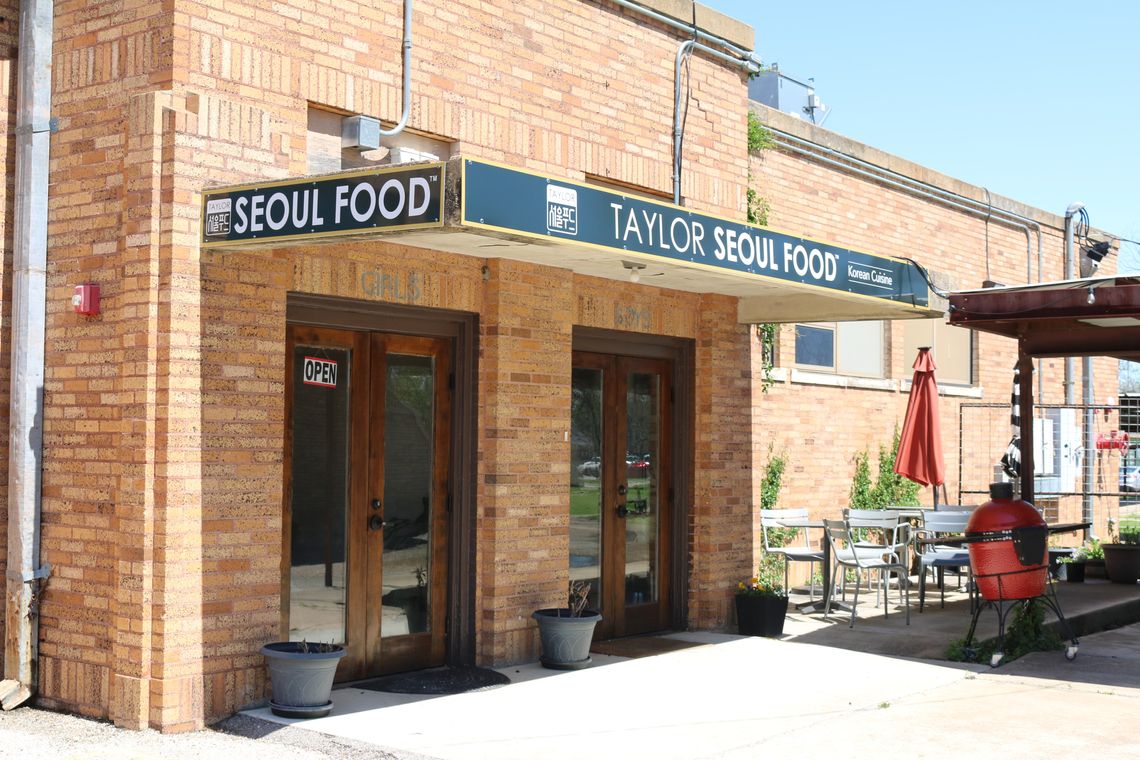The greater Austin metroplex is already a diverse area, but with the advent of Samsung Austin Semiconductor in Taylor, municipalities are finding ways to make the transition from “foreigner” to “neighbor” easier on incoming workers and their families.
There’s just something special about Texas — as any Texan will confirm. Whatever that something is, it has put the state in the migratory crosshairs for people seeking a better life.
And, while some Williamson County residents have taken to social media to post fears about how their rural area is changing for what they see as the worst, others have opened their arms to embrace the diversity newcomers bring.
“We see a lot of people from California, a lot of people from Austin moving to Williamson County. We’ve got a really robust Indian population,” said County Commissioner Russ Boles, whose Precinct 4 covers Hutto and Taylor. “People moving from Mexico have large established communities in our area and they do well. They’re all here and they’re great neighbors.”
And then, there’s the “Samsung effect.” Since South Korean-based parent company Samsung Electronics Co. Ltd. announced in November 2021 it would be constructing a $17 billion facility in Taylor and bringing thousands of new employees to the site, East Williamson County has been preparing to become home to a new wave of neighbors from South Korea.
Samsung officials say that similar to its existing Austin campus, the company does not plan to bring a large Korean workforce to the Taylor plant, but with with other Korean companies following Samsung’s Texas expansion the increase in the Asian population is noticeable.
From Whataburger to Starbucks and farmers markets, Koreans can be seen experiencing what life in Texas has to offer.
Taylor’s Mayor Pro-Tem Gerald Anderson said the city has been in the planning stages for hosting culturalexchange events such as a downtown fair.
“I think with the engineering and tech jobs coming, we’re going to be one of the most diverse cities in Central Texas if we aren’t already,” he said. “It’s important to get people acclimated to other people’s cultures so it’s not such a big deal when you come across people from other countries.”
In Hutto, several meetings between Samsung officials and city leaders have been held covering topics from police procedure to city operations, according to Assistant Police Chief Dwain Jones.
At least one of the meetings included a Samsung diversity and equity officer.
“The purpose of this meeting was to develop and coordinate cultural-diversity education courses for both entities to participate in, which are still in process of being completed,” Jones said.
The Williamson County Sheriff’s Office has held multiple cultural exchanges with Samsung employees at different levels.
“We’ve had several different meetings, a lot to do with the security of their facility, what law enforcement does and how we operate,” said Lt. Jerod Morris, who manages the training division at the Deputy A.W. Grimes Law Enforcement Training Center in Hutto.
He added, “We’ve had them create a Korean-culture class for us so that as our officers approach people who are new here they can have a better understanding of how to communicate and we can avoid making statements or movements that would make them uncomfortable.”
WSCO plans to produce the highlights of what was learned in a format that can be shared with all officers. The department also created a video of what a traffic stop looks like on the law-enforcement side to share with Samsung employees, so that if a newcomer from Korea is in a car that gets pulled over they won’t be shocked or frightened.
Morris said many of the differences that affect his department stem from the fact that in Korea most people have very little interaction with the police. And since firearms are outlawed, except for military and elite units, the average Korean has never experienced having an armed lawenforcement officer approach them.
“The biggest surprise for a lot of us was not understanding how the interactions were in their country. I expected it to be more like the ones here in our country. That their law-enforcement officers don’t respond to calls at people’s residences or make traffic stops is a big difference,” Morris said.
The emerging changes can be illustrated by simply looking at local restaurants. In an area which was once known for little more than barbecue and Tex-Mex, there are now a growing number of authentic Mexican and Asian eateries. And they’re attracting a wide range of customers.
“All cultures are enjoying Korean food. We have people from all the surrounding towns. We even had visitors from Italy recently,” said Sungeun Naomi Park, owner of Taylor Seoul Food, Suite B, 407 W. Ninth St in Taylor. “It’s not just catering to Korean customers.”
Park, who opened her restaurant two years ago, said that at first it was hard to feel at home in Taylor because she didn’t know anyone, but the city soon made her feel welcome.
“When I first opened, the mayor (Brandt Rydell) came over to greet me. Then his wife came to greet me. I was very touched by that. A lot of my customers reached out to me and became my friends,” the business owner said.
Park said she became part of the community by sharing her culture with others through her home-style cooking, and through joining a local gardening club and a breakfast group. Other newcomers have followed a similar path of participating in the community while integrating their heritage with their new home.
There are over 15,000 Nepalis in the Austin area, with more than a thousand residing in Hutto. Local Nepali children attend public schools and participate in campus activities, and they also attend classes within their community where they learn about their roots and keep traditions alive.
The Greater Austin Nepali Society celebrated the opening of its newly-built Pashupatinath Temple, 1251 CR 138 in Hutto, on March 8. The temple was built completely through donations, according to volunteer Niranjan Uprety. He said some families have already moved to Hutto specifically because of the temple.
Uprety first migrated from Nepal to California, then moved to Williamson County to be near family.
“It is a different country, California versus Texas. Texas is more friendly. Here I found a lot of people joining hands to build a temple and make society better,” he said.
The growing diverse populations are helping local Texans discover new cultural experiences. A two-day event showcasing food and culture from across Asia, including Vietnam, Thailand, Laos, Taiwan, Philippines, China, Japan, Korea and India was held in Hutto last year and is scheduled to happen again in 2025.
In March the city helped celebrate Holi, the Hindu festival of colors, with an annual event.
At the end of the day, native-born Texans and new Texans still have plenty in common.
Shannon Chavez, co-owner of Taylor Bike Co., 204 N. Main St. in Taylor, said the number of customers from other countries has started to increase.
“We sold a road bike to a gentleman who just moved here from Korea. He had a bike he really liked back home and he just wanted to have the same one here,” she said. “We’ve been seeing new people come in to look around and just chat with us about bikes.”
East Wilco could even become a kind of cultural hub, some said.
‘People who speak Spanish embrace all cultures because they come from everywhere,’ said Veronica Soliz Johnson, owner of Libros Bookshop, Suite 114, 410 W. Seventh St. in Taylor, a cultural center focused on Latina artists and authors.
Boles, who has visited Seoul, said that when it comes down to it, Koreans are very much like Texans. They work hard, enjoy time with family and just want to live in peace. And with a little effort, Boles believes new neighbors can become good friends.
“When it’s a hundred degrees outside, everybody enjoys a cold beer. Go have a cold beer with your neighbors and talk about what you can do to make your schools better, your county better, get to know them and get on the same page,” the commissioner said.
“We might not look exactly alike, but I think everybody is rowing in the same direction,” he added.








Comment
Comments